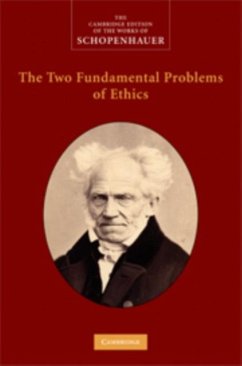Arthur Schopenhauer's The Two Fundamental Problems of Ethics (1841) consists of two groundbreaking essays: 'On the Freedom of the Will' and 'On the Basis of Morals'. The essays make original contributions to ethics and display Schopenhauer's erudition, prose-style and flair for philosophical controversy, as well as philosophical views that contrast sharply with the positions of both Kant and Nietzsche. Written accessibly, they do not presuppose the intricate metaphysics which Schopenhauer constructs elsewhere. This is the first English translation of these works to re-unite both essays in one volume. It offers a new translation by Christopher Janaway, together with an introduction, editorial notes on Schopenhauer's vocabulary and the different editions of his essays, a chronology of his life, a bibliography, and a glossary of names.
Dieser Download kann aus rechtlichen Gründen nur mit Rechnungsadresse in A, B, BG, CY, CZ, D, DK, EW, E, FIN, F, GR, HR, H, IRL, I, LT, L, LR, M, NL, PL, P, R, S, SLO, SK ausgeliefert werden.









